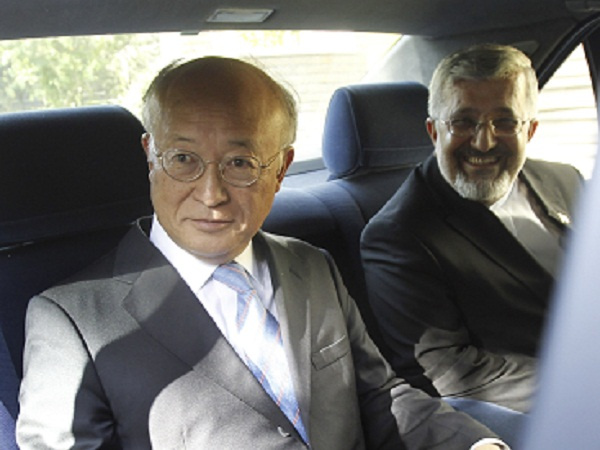Amano’s Reasoning in Recent IAEA Report Was Baseless

-Similar to previous reports, the recent IAEA report about Iran's nuclear activities is more politically-oriented and technical and legal aspects are less attended to.
- Unfortunately, the IAEA’a record during Mr. Amano's presidency has shown that he acts considerably under the influence of the US and its western allies. This is while the IAEA must be a completely technical and legal organization upon which no pressure from big powers can be effective, but its record has proven otherwise.
-There is an assumption that considering the Islamic Republic's success in holding the NAM Summit, there has been an attempt to overshadow it by presenting a report, a part of which, like always, has negative aspects.
-Basically, the basis of reasoning of the IAEA Secretary General in the presented report is not correct and, therefore, a report that is prepared on a false and unrealistic basis is naturally not a report in which a principled logic can be traced.
-The basis of reasoning of the IAEA Secretary General is Iran's non-compliance with Security Council resolutions, while it is obvious that, due to the fact that we consider these resolutions oppressive, political and illegal, we do not comply with them; therefore, the first basis of the report of the Secretary General is Iran's non-compliance with the Security Council and Board of Governors' resolutions.
-Basically, Iran has not accepted the Additional Protocol; hence, it does not comply with it. It is natural that when we have not accepted a commitment, there is no binding for its compliance, as is the case with countries like India and Pakistan that have not accepted the NPT and don't comply with it.
-We, in the parliament, strongly believe that as long as the IAEA and the Board of Governors' view of Iran's nuclear issue is political rather than technical and legal, such a structure must not be studied at all; therefore, the second basis of the Secretary General's reasoning is also weak.
-Another point emphasized in the report is Code 3.1 which is a part of commitments that a number of countries have accepted to implement, while we do not consider Code 3.1 as our commitment to be implemented.
-The Araak reactor was also mentioned in the report. Bearing in mind that the Tehran reactor which produces medicine for 800000 patients will be out of operation shortly, we have no choice but to take this step.
-The IAEA and its affiliates should, based on Article 4 of the NPT, be the defenders of Iran's nuclear rights as a member of the Treaty and remind those countries with knowledge of this technology of their violations that based on the NPT they are obliged to provide this technology to member countries. They do not do this and this is a clear violation of the Treaty.
-In part of Amano's report it is stated that Iran has 16 nuclear facilities and there are 9 places out of these facilities where nuclear materials have previously been used in and the IAEA is studying if Iran has deviated in this matter and other centers related to uranium enrichment. But the fact is that, in all centers which have been inspected, Iran's non-deviation has been practically approved.
-We do not accept the resolutions to forego our rights. The Islamic Consultative Assembly has, several times, obligated the government to defend this national right under any condition and step in this path.
-Iran will continue its cooperation with the IAEA within the framework of the safeguards and hopes that, in the future, the IAEA reports would not be prepared out of political pressure but rather based on transparent realities of Iran's peaceful nuclear activities.

